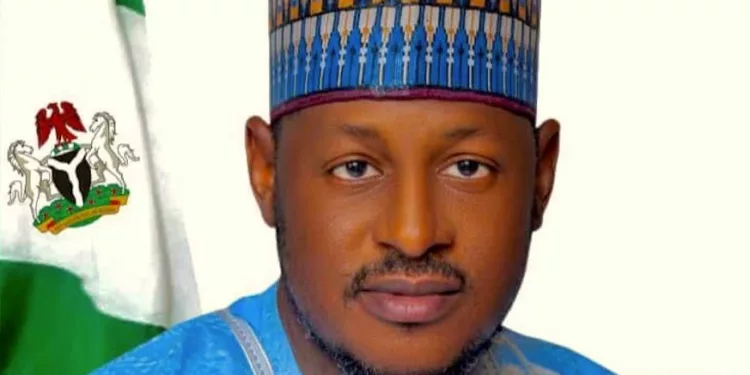Senior Special Assistant to Governor Dikko Umaru Radda on Disability Matters and retired naval officer, Lieutenant Hudu Usman, has revealed that over 600 individuals suffering from spinal cord injuries have been identified across Katsina State.
He also revealed that his office has registered more than 30,000 persons with special needs in the state, without a law to protect them.
Lt. Usman, who turned a devastating spinal cord injury sustained during military service into a powerful advocacy mission, made this disclosure in an exclusive interview with LEADERSHIP, highlighting the urgent need for legislative and institutional action to address the plight of vulnerable citizens in Katsina.
He recounted how, upon his return from a military-sponsored treatment in Germany, he founded the Spinal Cord Injury Association of Nigeria (Katsina Chapter) after observing the total neglect of people with spinal injuries across the state.
“Many of them were dying silently, left to traditional healers, or abandoned because their conditions were misunderstood as spiritual curses,” Usman said.
Using his personal savings and vehicle, Usman travelled across Katsina’s urban and rural communities to trace and register victims, eventually documenting over 600 spinal cord injury patients, many of whom were later referred to hospitals for life-saving care.
His advocacy caught the attention of Governor Radda, who appointed him to spearhead disability affairs at the state level.
However, Usman lamented that the lack of a domesticated disability law in Katsina, despite former President Muhammadu Buhari signing the National Disability Act in 2018, continues to frustrate efforts to deliver meaningful support to persons with disabilities.
Without a legal framework, there is no dedicated budget, rehabilitation centres, or a statutory commission to handle their needs.
“We’re working without a structure. I go to ministries, submitting memos and begging for inclusion in budgets. It’s exhausting and inefficient,” he said.
Despite these hurdles, Usman has personally compiled data for over 30,000 persons with disabilities, covering various conditions including blindness, deafness, and physical impairments. Yet, his work remains underfunded and lacks institutional backing.
He emphasised that passing the disability bill, which, according to him, is still on the floor of the state assembly, would create a legal foundation for a state disability commission, structured funding, and systemic support for all affected groups.
Without state-run interventions, Usman has focused on integrating people with disabilities into existing government empowerment schemes, ensuring they receive tools like sewing machines and training kits, and closely monitoring their use to ensure sustainable use.
He urged philanthropists, religious leaders, and civil society organisations to look beyond charity and provide structured, long-term support in line with what the government is doing.
“Their condition is one of the most expensive and isolating. They need more than sympathy, they need practical help, policy, and protection,” he stressed.
Looking to the future, Usman believes Katsina has the potential to become a model of disability inclusion in Nigeria, but only if the right structures are put in place.
He appealed for the urgent passage of the pending disability bill in the House of Assembly, noting that even the Governor has shown commitment by sponsoring one spinal cord injury survivor now pursuing a PhD.
“We want to see a Katsina where people with special needs are not beggars, but governors, professors, and leaders. We have the people. We have the passion. Now we need the law.”



